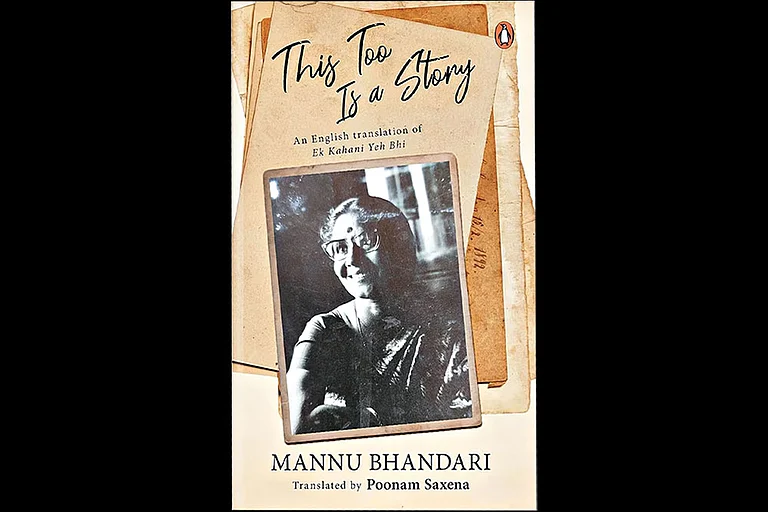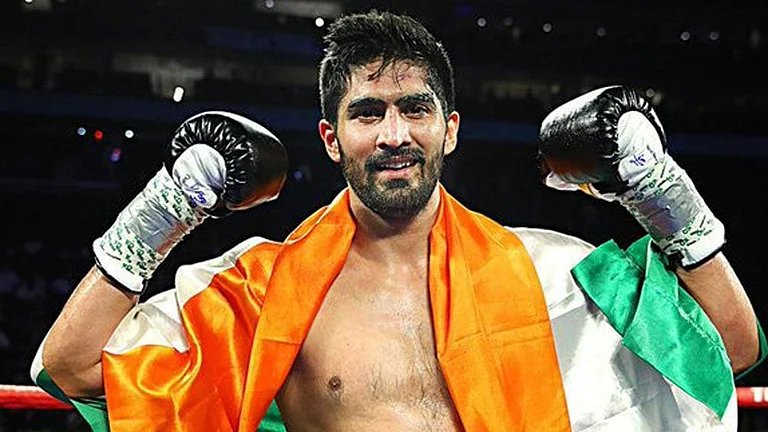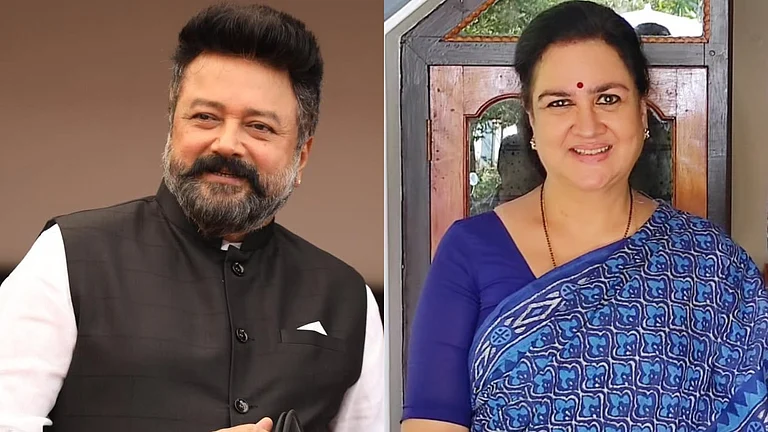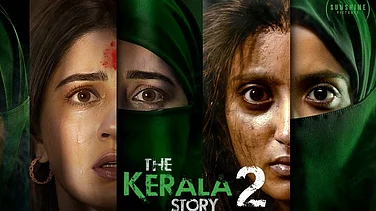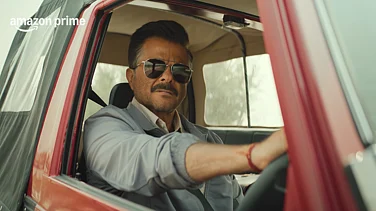Urvashi Rautela has won, this piece is proof. A part-time actor and full-time celebrity, Rautela has been on the fringes of fame for a dozen years. If you aren’t familiar with her work, it’s not entirely your fault. The handful of films she’s been in, have barely made a mark at the box office, except maybe Daaku Maharaj, which made over Rs 100 crores in its first week—something Rautela has mentioned without fail in each and every interview, irrespective of what the question might have been. Like many fair-skinned, steadfast starlets entering films through the route of pageantry, a 19-year-old Rautela made her debut with a 56-year-old Sunny Deol in Singh Saab The Great (2013). Starring in films that fixated on her bosom, Rautela became a laughing stock—for her blatant, compulsive lying habit (recently she claimed she had bought a limited edition Rolls Royce, something she tried to evade answering for a long time). A week ago, she posed on the red carpet at the 2025 Cannes film festival carrying a parrot-themed soft toy doubling as a clutch. Whatever one might think of her, it’s been quite the journey.
The Hindi cinema landscape is saturated with pretty faces, fit bodies, talented crafts persons and attention-seeking sociopaths, who will do just about anything to be famous. It’s not an entirely new phenomenon to see someone displaying ‘quirks’ in front of cameras. The likes of Rakhi Sawant had cornered that market in the early 2010s. Only last year, Poonam Pandey’s manager (in retrospect, a PR masterstroke) announced her death. A day later it was revealed to be a stunt—part of an ad campaign to raise awareness about cervical cancer. Pandey, whose claim to fame was announcing she would go topless if the Indian cricket team won the 2011 world cup, and after being a dormant topic for more than a decade, was again in the national headlines. One might consider them as Rautela’s rivals, fighting for their 15 seconds of fame.
Rautela was initially mocked for her less-than-perfect English pronunciation. In a reel, she says she would like to star in a film with Leonardo “Dye-Caprio”. After that it was the zeal with which she would promote her films that kept her going—when a reporter asked her about the attack on Saif Ali Khan, she responded with Daaku Maharaj’s collections in the first week. Also, something that sets her apart are her responses that seem borderline narcissistic, even delusional. Producer and Publicist Mauli Singh (founder of Loudspeaker Media) notes how Rautela’s image is more constructed than it seems. “There’s a conscious effort to look poised, there’s a pretense—it’s an act, which is very clearly visible,” she says, adding that she might not put Rautela and Rakhi Sawant in the same bracket. “Rakhi was being herself, while Urvashi has a bit more finesse.”

Dr Vihang Vahia finds plenty of reason behind Rautela’s unparalleled zeal during promotions. “There’s no foundation to rely on (for an actor’s career),” he observes. “There’s no guarantee that your skills finding acceptance today, will find acceptance next week. That’s a source of great anxiety.”
Dr Kersi Chavda doesn’t wish to comment on Rautela individually, but he echoes Dr Vahia’s thesis that a career in the Hindi film industry is a high pressure job. “To become a successful celebrity, yes, one needs some degree of narcissism and delusion,” notes Dr Chavda, “I have to make it, I’m the best—one has to constantly affirm to themselves because it’s very easy to end up on the opposite side, where you think you’re the most horrible person. It takes an extremely strong person to get to the top.”
Urvashi Rautela’s delusions—once the reason behind her viral reels—seem like an organic part of her personality now. For instance, during a conversation with RJ Siddharth Kannan, the 31-year-old Great Grand Masti (2016) actor insisted that there was a temple in Uttarakhand dedicated to her. For an audience now used to hearing the darndest things from Rautela in interviews, this didn’t come as a complete surprise. What was amusing though, was Kannan’s straight face throughout the interview, despite Rautela stretching the limits of possibility of her sound bytes.
Like ‘hate-watching’ and ‘cringe content’ have become a part of mainstream conversation, the audience might be attuned to Rautela’s interview in the same way they can’t look away from a car crash. “I’d read about this study long back,” recounts Dr Chavda, “how people applauded when six high-end cars collided with each other. It’s a mindset that exists till date, even though one might not be conscious. People relish the negativity happening to those in positions of privilege.”
With 72 million followers on Instagram, it might be more sensible to slot Rautela as an influencer rather than an actor. Singh says it’s a no-brainer that brands would want to send someone with her following to Cannes—it would be obvious for a publicist to line them up for her. “You need to send her with a make-up artist, a hairstylist and probably a couple of more people. I think the trip can cost between Rs 20-25 lakhs, which is pocket-change for a brand.”
The trip could do wonders for her brand equity, which would give her all the more leverage in the immediate future. “How do people like Urvashi make money? By showing up at live events, store openings, maybe a wedding in Kanpur. And they’ll call her because she walked on the same red carpet which is known for Aishwarya Rai Bachchan, Deepika Padukone etc.” Singh is confident that the red carpet look alone will translate into many more item numbers at the very least, if not full-fledged film offers. “Just look at how many people are talking about the parrot purse, I don’t think as many people are talking about Neeraj Ghaywan’s film (Homebound, playing in the Un Certain Regard section, is the only Indian film playing in the festival this year).”
But Singh warns that the kind of attention Rautela seeks can also be a slippery slope. “I’m sure a lot of people take her for granted, based on her image. And it can be a dangerous line to mind, especially for women.” Dr Chavda points out that one can be self-aware to play the game of humiliating oneself on a daily basis, since it is lucrative in the short-term. “I’ve seen reels where a man is dancing badly, or someone is singing screechily. Some might find it funny for a while, but over time I think, there is a loss of dignity.
Dr Vahia suggests that he’s often noticed a recurring trait in aspiring Bollywood actors to seek attention, through good or bad means. While some might be in denial about not having made it, there are others who simply decide that they can’t afford to fail. “So they concoct parameters to rate themselves highly,” observes Dr Vahia, “which is their way of defending themselves against failure and depression. It’s being slightly detached from reality.” Rautela, till very recently, would bestow silly achievements on herself like “First girl from IIT to win Miss Universe”, which makes two glaringly erroneous claims—considering she’s neither from IIT, nor is she a Miss Universe.
Both Dr Chavda and Dr Vahia conclude that provocation as a strategy can work in the short term, but it’s unlikely to last for very long. So, while one might be tempted to laugh at Rautela’s desperation, Singh suggests that she might know this period is a fleeting aberration. Hence, she might be smarter than we’re giving her credit for—making hay while the sun shines. For an industry that is notorious for riddling people with debilitating anxiety and insecurity (we saw a recent video of Babil Khan’s breakdown), maybe Rautela’s delusion and narcissism might be the superpowers that have allowed her to survive in the industry for over 12 years, despite not being inundated with film offers.
“Once upon a time, you had to be a film star to represent a brand,” says Singh, “Many brands can’t afford to sign Shah Rukh Khan, Ajay Devgn or Akshay Kumar. That space has been taken up by the likes of Urvashi Rautela.” However, she also warns that while her grit to survive in an industry is admirable, it doesn’t automatically translate to a body of work. “It all boils down to a personal choice. It depends on who one is, what one’s desires are. Everyone wants love and attention. Props to whatever she’s done, but as much as I’d admire her journey, I wouldn’t use it as a road-map. Or ask a loved one to follow the same path.”
In Cannes, Rautela is busy putting up posts with social media sensation Orry. It seems like she has won for now. But one needs to take a beat and ask: At what cost? And for how long?




